Brighton: Council accused of 'dumping' homeless in neighbouring towns
- Published
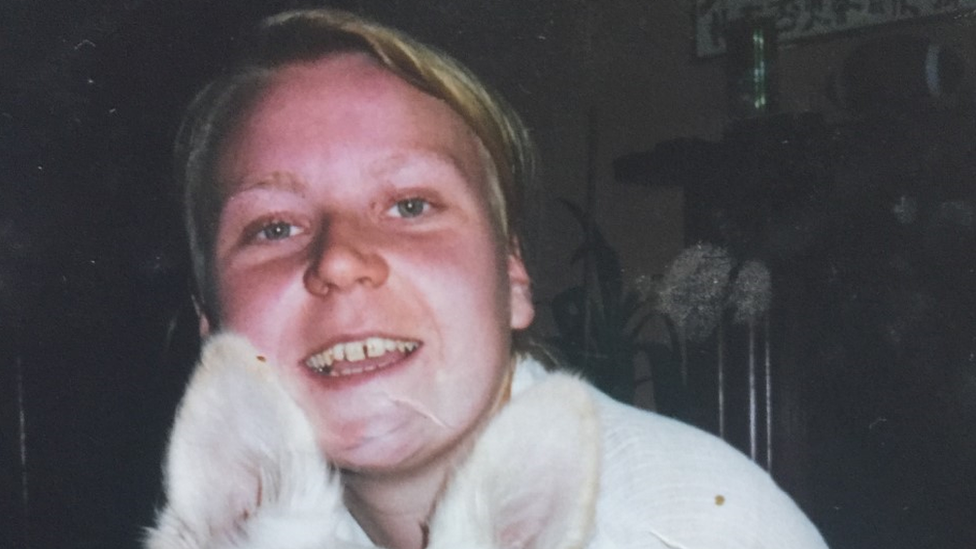
Robyn Rockmann died at Kendal Court in August 2018
A council has been accused of "dumping" vulnerable people in homeless accommodation in neighbouring towns.
Hundreds of homeless people in Brighton have been sent to emergency housing outside the city, the BBC has found.
Some were moved into a block of flats in Newhaven, East Sussex, where at least 10 people have died since 2016.
A neighbouring authority is considering legal action to prevent more deaths. Brighton & Hove Council said there was an accommodation shortage in the city.
It said people with the most serious needs are usually not moved away. However, experts say vulnerable people are still being sent away from vital support networks outside Brighton.
Mark Stainton, director of adult social care at neighbouring East Sussex County Council, last week said, external it was taking further advice on legal action against Brighton to stop any more of its residents "coming to serious harm or even death" while temporarily housed in the area.
'Dumping ground'
The BBC found Brighton & Hove City Council started housing homeless people in Kendal Court, external, a block of 54 self-contained flats that is 10 miles away from the city, in 2016.
Since then, at least 10 people housed there have died, external, including a suspected suicide this month. Sussex Police said there were no suspicious circumstances.
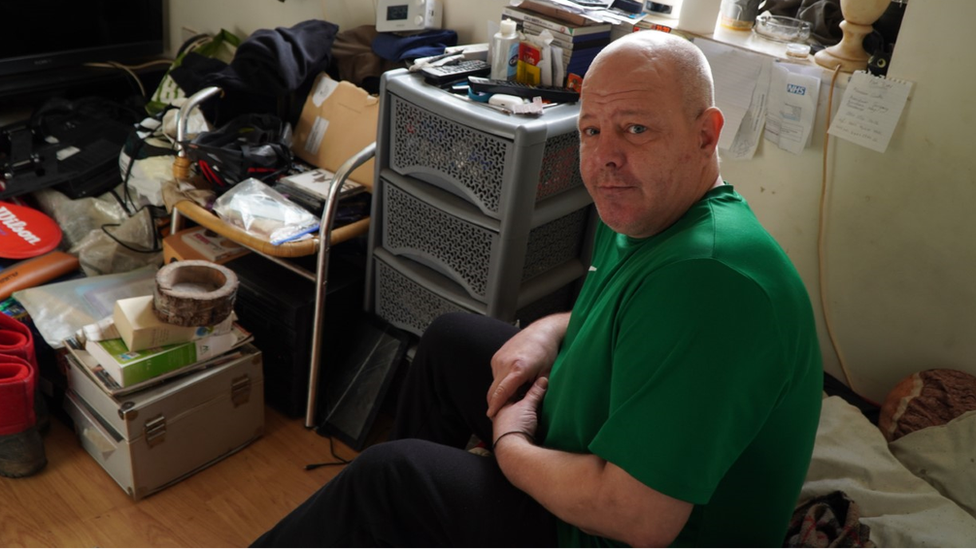
Leon Rose in his flat in Kendal Court
One of those was Philip Davies, 58, who had been rehoused at Kendal Court from Brighton. He was found dead at the block of flats in July. Fellow resident, Leon Rose, was one of the first to find his body.
"As soon as I touched his leg, I could feel he was ice cold," he says. "What happened was out of order."
Leon was himself moved to Kendal Court from Brighton 18 months ago, having been released from prison. He says, Shane Hall, a childhood friend who also ended up living in the block, also died there in 2020.
"Once you're put here, and you get to see the people that are here, and what goes on, it's like a dumping ground," says Leon. "There's no point putting someone somewhere and just forgetting about them. It's temporary accommodation - surely you've got to be there to help them to move on, to progress to better premises."
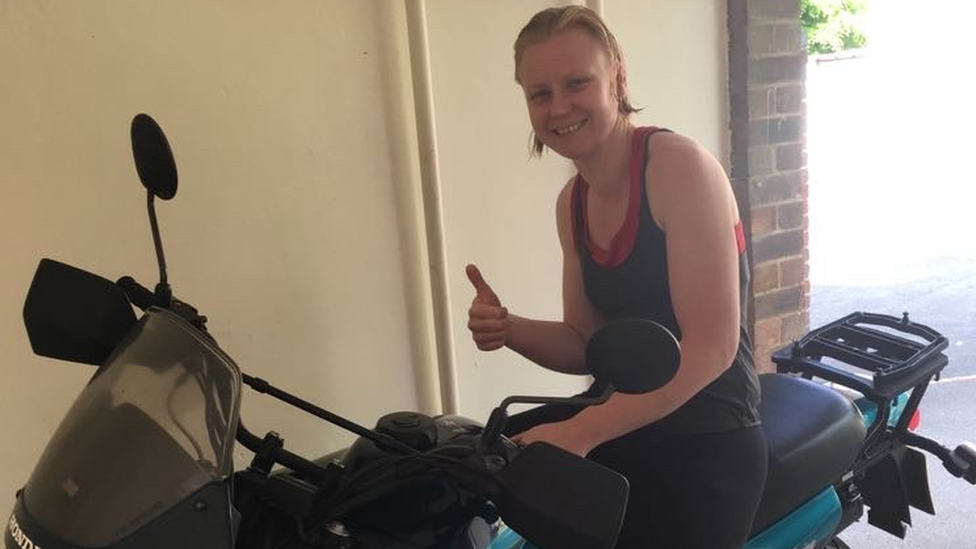
Robyn struggled to find somewhere to live in Brighton
Mature student Robyn Rockmann died at Kendal Court in August 2018, one of four deaths there that summer. Her family believes her body went undiscovered for four days.
Robyn - whose mother Margaret describes her as a "talented, self-taught musician, the sweetest girl you could ever wish to meet" - was homeless and had asked Brighton council to find her accommodation.
She had mental health problems and had visited a local hospital shortly before her death, saying she was feeling suicidal.
She was assessed and shortly after sent to Kendal Court, where she died a few weeks later. A death was recorded as suicide, by a coroner.
"Kendal Court is not suitable for anyone who is vulnerable who needs mental health services," Margaret said.
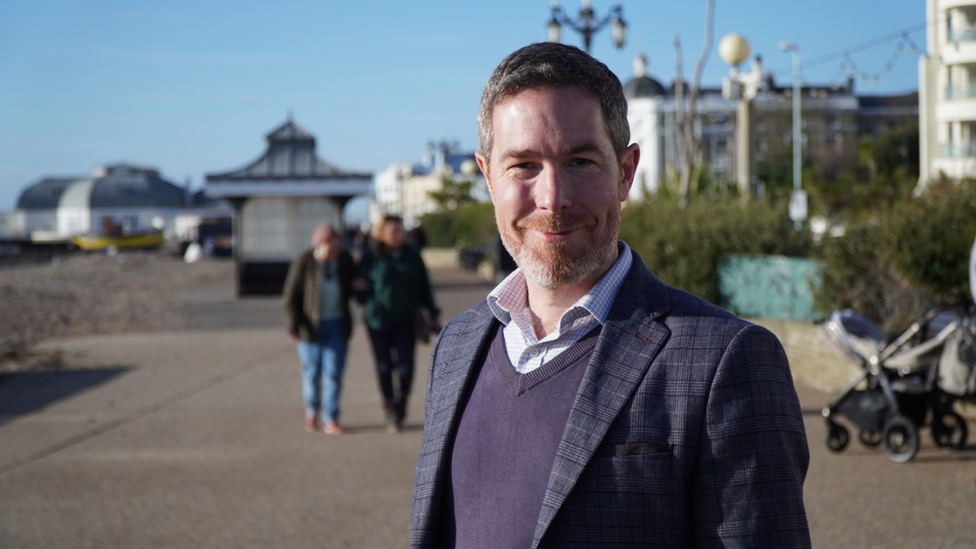
Dr Tim Worthley says he understands the pressure Brighton & Hove Council is under
Robyn was a patient of Arch Healthcare, a Brighton-based GP practice for homeless people.
Lead GP, Dr Tim Worthley, says while he understands the pressure Brighton council is under, moving people out of the city is detrimental to their health and can lead them to feel isolated.
"We have people on the phone with us, sobbing, really desperate for them to be moved back into the area so they can receive the care and support that they need."
A few months after Robyn's death, the local Healthwatch group, an independent health and social care committee, was asked by the council to produce an assessment of services at Kendal Court. The report found significant problems., external
A follow-up report, in the summer of 2021, found some "welcome improvements", including better security and facilities. It noted women and children were no longer being housed there.
But some issues remained, including a lack of appropriate assessments for mental health problems and "limited connectivity" to appropriate support services.
About half of residents interviewed mentioned a lack of access to mental health support, while more than 40% said they felt isolated or fearful at the accommodation.
The report recommended people with multiple and complex needs, and those considered extremely vulnerable, should not be placed in Kendal Court.
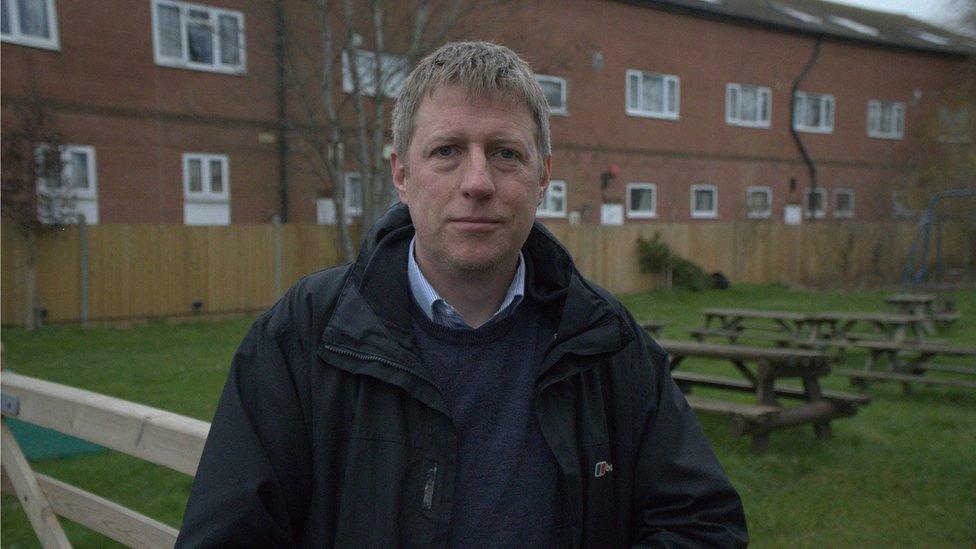
Councillor James MacCleary outside Kendal Court
Brighton's neighbouring authorities, Lewes District Council and Eastbourne Borough Council, as well as East Sussex County Council, have raised concerns about how Brighton treats it homeless population for more than a year.
As well as Kendal Court, Brighton has recently started using hotels in Eastbourne to accommodate people.
At least three people have died in the town, with Lewes and Eastbourne councils describing the situation as "unsustainable for local services and unsafe for homeless people".
"They don't seem to have the political will within the council, certainly within the officers, to actually sort it out," says James MacCleary, deputy leader of Lewes District Council.
"We've been banging our heads against this brick wall for years now and the deaths have been piling up."
Brighton & Hove Council says it does not accept the claim that Kendal Court is unsuitable for accommodating homeless people, saying the flats have been "subject to a number of improvements".
It says the number of people housed outside the city has decreased from more than 300 to just below 170.
The council said it is in "regular contact" with all partner councils where it uses properties to accommodate homeless people, and it has a dedicated welfare team to support homeless people in short-term and emergency accommodation.